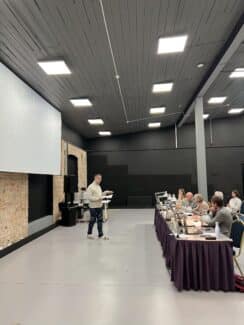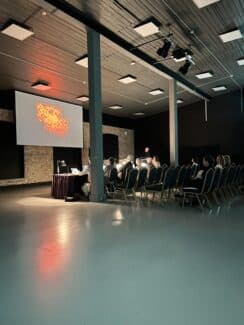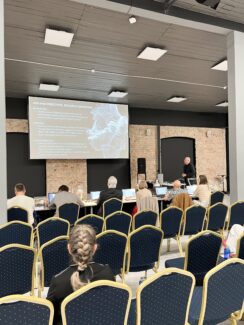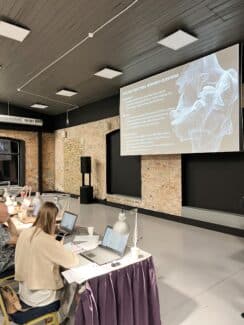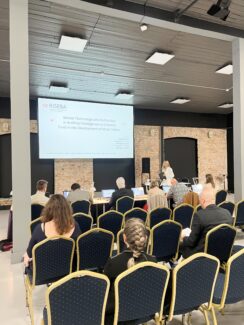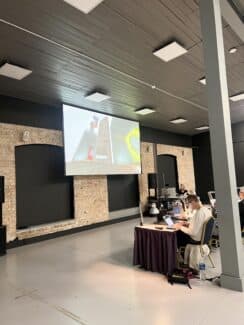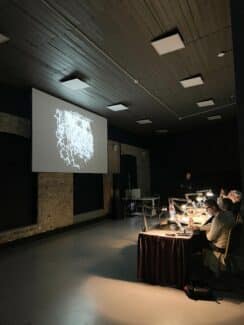Master’s Thesis Defence: “New Media and Audiovisual Art” Programme
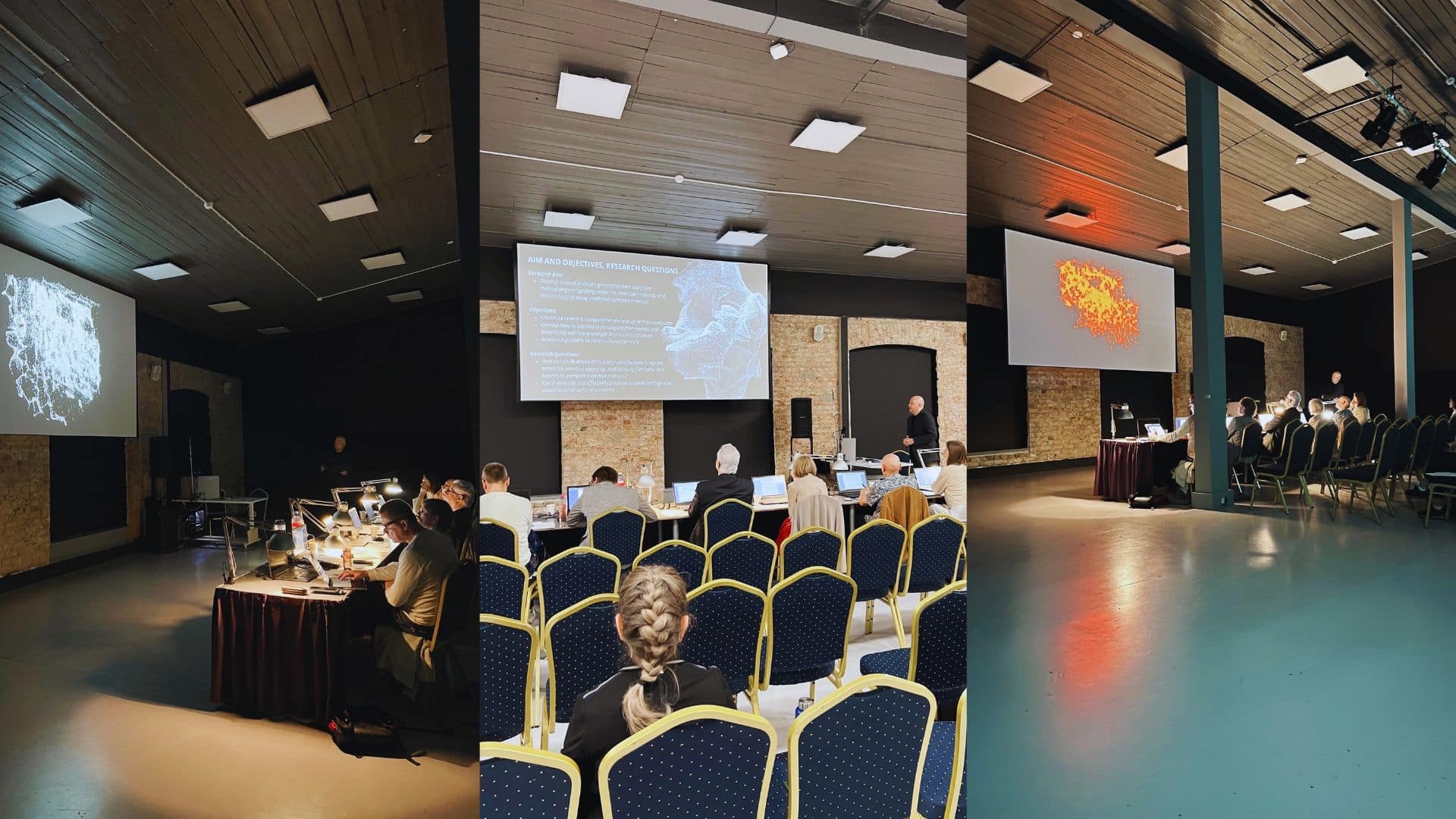
On 4 June, the defence of master’s theses developed by students of the “New Media and Audiovisual Art” programme took place in the Dance Hall at RISEBA University’s Durbes iela 4 building.
This year, most of the research focused on various aspects of artificial intelligence. The master’s students presented both fascinating, in-depth research and meaningful, creative works.
RISEBA University’s position is that artificial intelligence will not replace humans in the labour market, but those who know how to use AI will have significant advantages. This view is also reflected in the master’s students’ research on the practical application of AI and the ethical aspects of its use. For example, how can AI tools be used to create a music video? How can AI-generated sculptures be designed? One of the master’s theses was dedicated to creating a VR space based on the motifs of Alice in Wonderland.
The main goal of the “New Media and Audiovisual Art” programme is to unite resources and experience to implement a high-quality, innovative academic master’s programme at both national and international levels in the field of arts and humanities.
The aim of the programme is to prepare competitive, research-oriented professionals—artists with versatile knowledge in new technologies, audiovisual art, and digital culture. Professionals who know how to create artworks and innovative media products.
During their studies, master’s students hone their research skills and implement competitive projects in the fields of art, innovation technologies, and the creative industries. Digital technologies are used both in the creation of traditional audiovisual art (documentaries, video scenography projects, multimedia performances, digital art installations), and in the work of mass media (television, cinema, radio, special effects in post-production), as well as in the search for new art forms (augmented/virtual reality, 360-degree video, interactive narratology, immersive environments and game design), and in the development of practice-based research and the digitalisation of cultural processes (cultural analytics, data visualisation, archiving).
